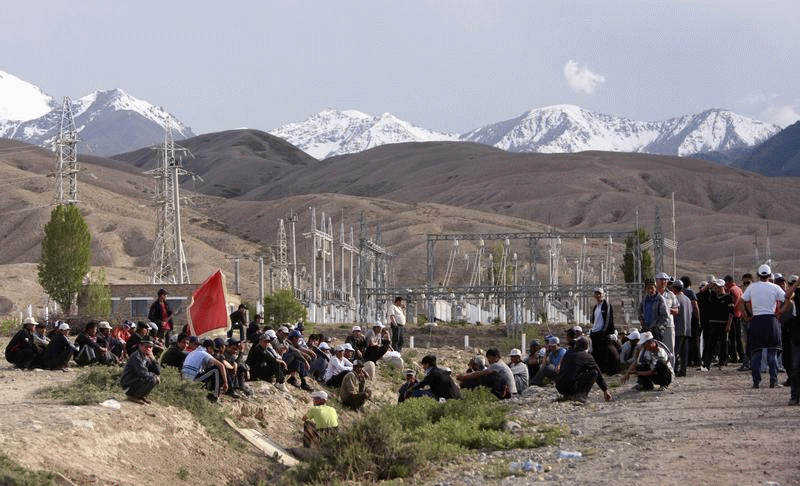WITH A GROWING NUMBER of mining companies moving into higher-risk countries in recent years in the search of the next big deposit, they and their investors are increasingly grappling with a resurgence in resource nationalism that can badly buffet share prices.
There’s been a trend recently for foreign governments, especially in emerging-market countries, to target large producers and seek higher taxes, larger shares of the profits, new ownership arrangements or new kinds of payments from the same companies they once wooed with generous concessions.
And if they don’t get what they’re asking for? The companies may find their permits yanked, their income and personnel restricted from leaving the country, their tax regimes or legal obligations suddenly changed, or even be forced to give the government or state a larger stake in the project.
“Mining companies are easy targets because mining projects are so incredibly capital intensive that governments realize they are there for the long term,” says Linda Misetich Dann, co-head of capital markets and M&A, securities, corporate finance, and mining transactions at Bennett Jones LLP in Toronto.
Roger Taplin, co-leader of the global mining group at McCarthy Tétrault LLP, points out that it’s important for mining companies “that having committed that capital, they not then be held hostage to any fundamental change to that bargain.” And while resource nationalism isn’t new, he says, “there is an increasing level of anxiety around country risk.”
It’s not just the company executives, but the stockholders who may be biting their nails to the quick.
Last week was a good one for shareholders in Toronto-based Centerra Gold Inc., which finally settled its dispute with the Kyrgyz Republic dating back to 2015. But the price of a return to its 2009 agreement was a payment of US $50 million and yearly payments of US $2.7 million to a new government-administered nature-development fund, as well as a onetime US $10-million payment to a new cancer-care fund.
It was also a good week for anyone holding Tahoe Resources Inc., based in Reno, Nevada, with the Guatemalan supreme court reinstating a mining licence revoked earlier this year for allegedly failing to consult with Indigenous communities, a charge that sent its stock down 33 per cent.
On the other hand, It was not a good week for shareholders of Vancouver-based Eldorado Gold Corp., which warned it would suspend operations in several Greek mines on Sept. 21 unless it receives all pertinent government licenses and permits. Eldorado, the country’s largest foreign investor, says that despite repeated attempts to engage with Greece’s leftist government (which, according to Reuters, has “powerful insiders” that oppose privately owned mining projects), delays in receiving routine permits and licences “have negatively impacted Eldorado’s project schedules and costs.” About half the company’s net asset value comes from the economically ravaged country.
Miners hit by resource nationalism
These are fraught times for major mining companies.
No one is immune. Even large multinationals with social license and all the permits who have been mining in a country for years can be slapped with new government demands.
Toronto-based Barrick Gold Corp. –– the world’s largest gold mining company –– is embroiled in the granddaddy of disputes with the government of Tanzania through Acacia Mining plc, its 64-per-cent-owned subsidiary.
The Tanzania Revenue Authority is demanding US $190 billion in alleged unpaid taxes, penalties, and interest –– four times the country’s annual GDP of US $47 billion –– plus an apology to higher beings. “If they accept that they stole from us and seek forgiveness in front of God and the angels … we are ready to do business,” Tanzanian President John Magufuli said of Acacia, which it accuses of underreporting its gold exports by a factor of 10, an allegation the company says is “absurd.”
In March, the government imposed a ban on the export of gold and copper concentrates. In April, it unveiled a new presidential committee to look into gold exports. In May, the committee issued a report accusing Acacia of underreporting its gold exports and recommended, among other things, the country maintain a mineral export ban on all foreign miners until any back taxes are paid; that existing mining agreements be renegotiated to allow the state to buy shares in the companies; and that any arbitration be handled by Tanzanian courts. Acacia –– Tanzania’s largest foreign investor –– has been stockpiling its output since the ban; two weeks ago it announced that it will be laying off workers and suspending underground operations, and warned it may shutter its flagship Bulyanhulu mine entirely.
And last month, after nearly eight years of fighting, giant Freeport-McMoRan Inc. agreed to divest majority ownership in its Indonesian subsidiary as the price of keeping its giant Grasberg copper and gold mine operating.
The cost of doing business in emerging-market countries
“The strains that are always there have become more acute, and the general expectation is this will get worse before it gets better –– if it ever does,” says McCarthy Tétrault’s Taplin.
He says governments of emerging economies that need to shore up revenues don’t always appreciate that mining companies take very long-term risk in the commodities cycle, and what look like massive profits when prices are high must be amortized over the longer term to keep a company viable.
“We’ve seen a tendency by governments to look at super profits in very high commodity price environments and say, ‘We’ve left too much on the table. We want more.’ What they don’t recognize is when mining companies are in the trough, they are either burning cash to stay in operation or living with very, very thin margins,” says Taplin.
“It’s the good times that subsidize the bad times,” he adds, “and if governments want large capital projects that employ people and bring in revenues surviving in the longer term, they have to be very careful about understanding those economic realities. And they don’t always, unfortunately.”
Quentin Markin, co-head of the global mining group at Stikeman Elliott LLP, calls Acacia’s situation “so far out there from a rule-of-law perspective that I think you’ll see people put a box around Tanzania for a number of years and say: ‘We’re just not going to go there.’ ”
In many cases, he says, mining companies are prepared to deal with a certain level of increasing government demands, and factor that into the decision of whether to build a mine. But there are some jurisdictions such as Tanzania and the Democratic Republic of the Congo, and some countries in central Asia and in South America “where you look at and say hmmm, is the risk-reward of the asset worth the risk of political-economic nationalist concerns, and that will become a factor?”
Markin believes what will drive mining company decisions is a declining number of world-class assets. “They’re not being discovered at the rate they were and when they are discovered, it’s very tempting to go after them, acquire them, and then sort out the political consequences afterwards.”
Taplin agrees, saying there is “a tension that is established between needing to go to tougher jurisdictions to find good prospective projects that have long mine lives and good grades –– because those are hard to find, even in those jurisdictions –– and then needing to chin up to a potentially higher level of country risk in order to get that project.”
It’s a strategy that comes with a risk of backfiring, as some Canadian producers have discovered. In Zambia, miners including Toronto-headquartered First Quantum Minerals Ltd. and Barrick Gold are getting a rough ride over the cost of the power needed to fuel their operations.
In a bid to attract investment in power generation, Africa’s second-largest copper producer increased the price of electricity –– just for miners –– by 26 per cent at the beginning of 2016.
Misetich Dann of Bennett Jones calls that “a huge issue.” Mining projects tend to be located in remote areas of the countryside “and so power, the ability to access power, are necessary to be able to get the resource in and out. So this will definitely affect a company’s bottom line.”
Resource nationalism can take the form of so-called creeping expropriation, she says. “It can be increased taxes, royalties, putting in import-export restrictions or redefining [a country’s] mining laws. These are all things that can be done short of expropriation that have a severe and significant impact on the mining companies that do business in that jurisdiction.”
But a bad-news story for some companies may turn out to be good news for others. The Fraser Institute’s 2016 Annual Survey of Mining Companies, which rates 104 jurisdictions around the world, found Saskatchewan and Manitoba as the top two global mining destinations, with Quebec also ranking in the top 10.
So could the rise in resource nationalism lead explorers and producers to give Canada a more serious look? “I would answer yes, without hesitation,” says Frank Mariage of Fasken Martineau DuMoulin LLP in Montréal. While it may not be the cheapest jurisdiction for miners, “Canada is consistently regarded as one of the most stable jurisdictions in the world.”





